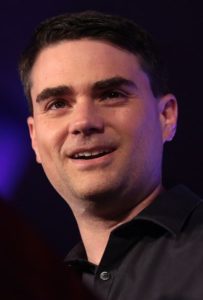History’s Wisest Man and Greatest King
 Shlomo ben David (c. 983-931 BCE) was born in Jerusalem to King David and his wife Batsheva. He inherited the throne when he was just 12 years old. God famously appeared to him in a dream and asked what Shlomo wanted most, to which the young king replied that he wished for wisdom to rule his kingdom justly. God replied that since Shlomo did not ask for a long reign, riches, or power, He would grant Shlomo the wisdom he asked for, as well as longevity, riches, and power (I Kings 3:11). Shlomo went on to rule for a long four decades, equal to his father David, and merited to preside over an era of total peace (alluded to by his name “Shlomo”, from the root shalom). He forged many peace treaties (often through marriage, resulting in hundreds of wives), established strong trade relations with his neighbours, greatly expanded the Israelite military, and most importantly, built Jerusalem’s first Holy Temple, the Beit haMikdash. He was a wise judge, and prolific thinker and scholar, composing 3 of the 24 books of the Tanakh, including the Book of Proverbs, Ecclesiastes (Kohelet), and Song of Songs. He was also an astronomer, master of the dark arts, and a polyglot fluent in numerous languages—even able to communicate with wild life! Despite his immense wisdom, when he wrote in Proverbs 30:18 that there were four things he still did not quite understand, the Midrash states these are the mysteries of the four species waved on the holiday of Sukkot (lulav, hadassim, aravot, and etrog). In Jewish tradition, it is customary to read his book Kohelet during Sukkot. It is also believed that it was Shlomo who instituted the practice of netilat yadayim, the ritual washing of the hands before a meal. Interestingly, one of Shlomo’s direct ancestors was named Salmah (see Ruth 4:18-19), spelled the exact same way in Hebrew as Shlomo (שלמה), though vowelized differently. Salmah was also called Sal’mon (שלמון), which was likely confused in the non-Jewish world and may be the reason why Shlomo’s name was transliterated as “Salman” in Greek, “Suleiman” in Arabic, and “Solomon” in English! The Midrash (Pirkei d’Rabbi Eliezer) lists Shlomo as one of history’s ten most powerful kings.
Shlomo ben David (c. 983-931 BCE) was born in Jerusalem to King David and his wife Batsheva. He inherited the throne when he was just 12 years old. God famously appeared to him in a dream and asked what Shlomo wanted most, to which the young king replied that he wished for wisdom to rule his kingdom justly. God replied that since Shlomo did not ask for a long reign, riches, or power, He would grant Shlomo the wisdom he asked for, as well as longevity, riches, and power (I Kings 3:11). Shlomo went on to rule for a long four decades, equal to his father David, and merited to preside over an era of total peace (alluded to by his name “Shlomo”, from the root shalom). He forged many peace treaties (often through marriage, resulting in hundreds of wives), established strong trade relations with his neighbours, greatly expanded the Israelite military, and most importantly, built Jerusalem’s first Holy Temple, the Beit haMikdash. He was a wise judge, and prolific thinker and scholar, composing 3 of the 24 books of the Tanakh, including the Book of Proverbs, Ecclesiastes (Kohelet), and Song of Songs. He was also an astronomer, master of the dark arts, and a polyglot fluent in numerous languages—even able to communicate with wild life! Despite his immense wisdom, when he wrote in Proverbs 30:18 that there were four things he still did not quite understand, the Midrash states these are the mysteries of the four species waved on the holiday of Sukkot (lulav, hadassim, aravot, and etrog). In Jewish tradition, it is customary to read his book Kohelet during Sukkot. It is also believed that it was Shlomo who instituted the practice of netilat yadayim, the ritual washing of the hands before a meal. Interestingly, one of Shlomo’s direct ancestors was named Salmah (see Ruth 4:18-19), spelled the exact same way in Hebrew as Shlomo (שלמה), though vowelized differently. Salmah was also called Sal’mon (שלמון), which was likely confused in the non-Jewish world and may be the reason why Shlomo’s name was transliterated as “Salman” in Greek, “Suleiman” in Arabic, and “Solomon” in English! The Midrash (Pirkei d’Rabbi Eliezer) lists Shlomo as one of history’s ten most powerful kings.
Chag Sukkot Sameach!
14 Sukkot Facts Every Jew Should Know
Rare Photo of Sukkot During World War I
Who Really Wants Peace in the Middle East?
Words of the Week
Our way… is the way of peace. It is narrow, difficult and unpaved. There is no false heroism on it and no false pathos, but it rests, so I believe, on the historic tradition of the Jewish people.
– Chaim Weizmann, first president of Israel


